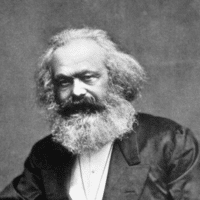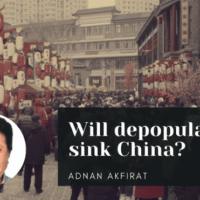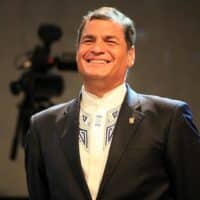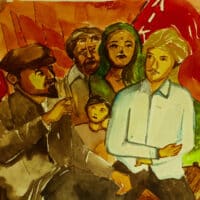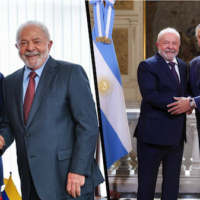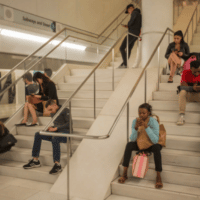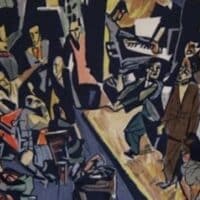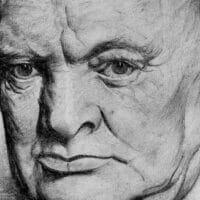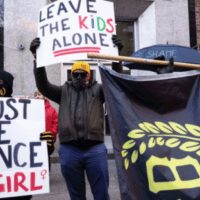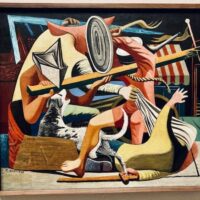-
Review of “Critique of the Gotha Program,” by Karl Marx
This new edition of Marx’s 1875 ‘Critique of the Gotha Program’ comes with a few surprises in translation for Marxists who have previously interpreted it as justification for the continuation of wage-labour and commodity production, under the ‘dictatorship of the proletariat’ in the ‘first phase’ of socialism/communism.
-
Will depopulation sink China?
In the following article, Adnan Akfirat, Chairman of the Turkish-Chinese Business and Development Friendship Association, and a member of our advisory group, analyses the recent demographic changes in China, which see the population not only age but start to fall, with India on course to become the world’s most populous nation this year, if it has not already done so.
-
Why I wrote a book about my pet parrot
Michael & Debby Smith write about 30 years of living with a parrot whose intelligence and emotional awareness challenges our human-centric world view.
-
A masterpiece of Socialist Realism
BRUNI DE LA MOTTE recommends a classic of East German literature that gives a human face to difficult political choices.
-
Socialism is increasingly popular in the U.S. So the House of Representatives denounces it
Conservatives in the House of Representatives passed a resolution “denouncing the horrors of socialism” and opposing the implementation of socialist policies.
-
Peace deal between Ethiopian government and TPLF holds despite delays in implementation; U.S. escalates attempts to scapegoat Eritrea
Attempts by U.S. and other Western countries to sow discord between Ethiopia and Eritrea “will not be successful because the majority of the Ethiopian people are grateful for the Eritrean army’s help in defeating the TPLF,” former Ethiopian diplomat Mohamed Hassan told Peoples Dispatch.
-
We are the Citizen Revolution again: Ecuador’s Rafael Correa
On Sunday, the Ecuadorian right-wing parties suffered a resounding defeat both in the subnational elections and in the referendum.
-
The question of the civilizational state: an interview at Guancha with Vijay Prashad
Following the interviews with Zhang Weiwei, director of the China Institute at Fudan University, and Martin Jacques, former senior fellow of the Department of Politics and International Studies at Cambridge University, Guancha.cn (观察者网) invited Vijay Prashad, executive director of the Tricontinental: Institute for Social Research, to continue the discussion on the “civilizational state”.
-
Animal crackers: Berlin Bulletin 207, February 5 2023
“Hey”, squeaked one furry lemming to another (in lemming-lingo, of course). “I saw you trying to slip away from the crowd! Do you want to betray us good lemmings. Maybe you’re a fox-lover, even a wolf-lover. You’d better keep in line till we reach our proper goal.” As lemming-lovers sadly know, that goal could be over the cliff into the sea.
-
Latin America refuses to send Ukraine weapons, despite Western pressure
Brazil, Argentina, and Colombia have refused to send weapons to Ukraine, despite pressure by the U.S. and EU. Latin American left-wing leaders have urged peace with Russia and called for neutrality in the West’s new cold war.
-
NYT worries Big Brother is not watching you
You might think, Wow, I didn’t think the Times had it in it to take on Google, Meta and Amazon so directly. Well… you’d be right.
-
Labour leader finally appears on a picket line…
… in the form of a life-size cardboard cut-out.
-
A startup says it’s begun releasing particles into the atmosphere, in an effort to tweak the climate
Make Sunsets is already attempting to earn revenue for geoengineering, a move likely to provoke widespread criticism.
-
Capitalism’s court jester: Slavoj Žižek
One of the most prominent intellectuals in the contemporary world was named to the list of the “Top 100 Global Thinkers” in Foreign Policy magazine in 2012. He shares this distinction with the likes of Dick Cheney, Recep Tayyip Erdoğan, Benjamin Netanyahu, and former Mossad director Meir Dagan.
-
The Dakar Declaration
Adopted in October 2022 at the Museum of Black Civilizations, Dakar, Senegal.
-
DADA NEW YEAR: Tristan Tzara’s Boom, Boom, Boom
I know I’m not the only one thinking that our world has lost its mind. It’s not easy being some relatively sane person nowadays. At the best of times, politics is bankrupt. At its worst, it’s toxic, dominated by demagogues, liars and cheats. Their falsehoods fly wholesale, rarely disgruntling masses of people, let alone damaging a demagogue’s political career.
-
Dismantling the cult of Churchill
Tariq Ali’s new book examines the disconnect between Churchill’s popular image and the larger context of his life and times.
-
Statement by Ana Belen Montes after her release from prison
Here is an update and current image of Ana Belen Montes, after her release from prison … we share with you the only authorized statement she wanted to share and make public, sent through her lawyer Linda Backiel on Sunday, January 8, 2023.
-
The right turns anti-LGBTQ hate up to 11
In the past few years, the right-wing media have become laser-focused on transgender issues, not always attacking trans people individually, but instead claiming that children are being “groomed” to adopt “radical gender ideology,” and that rights for the trans community are infringing on the rights of children, women and Christians.
-
Socialism is not a Utopian ideal, but an achievable necessity: The First Newsletter (2023)
In May 2021, the executive director of UN Women, Phumzile Mlambo-Ngcuka, and the UN high representative for disarmament affairs, Izumi Nakamitsu, wrote an article urging governments to cut excessive military spending in favour of increasing spending on social and economic development.

